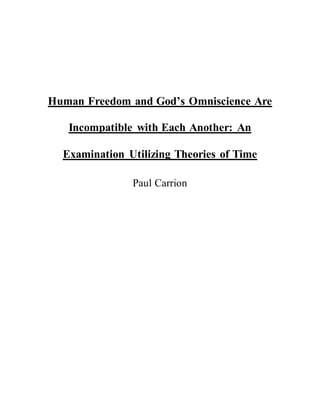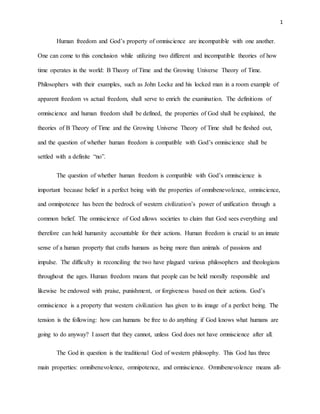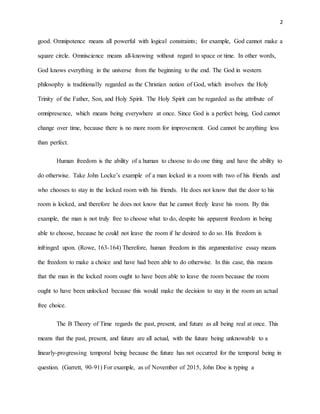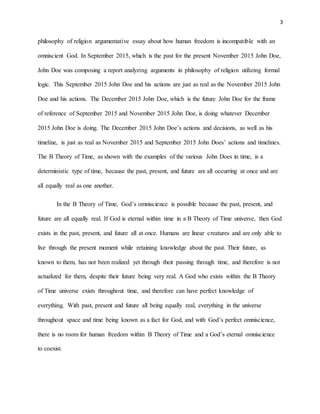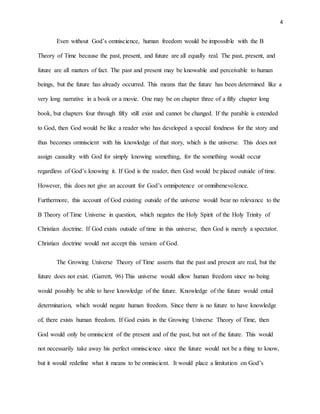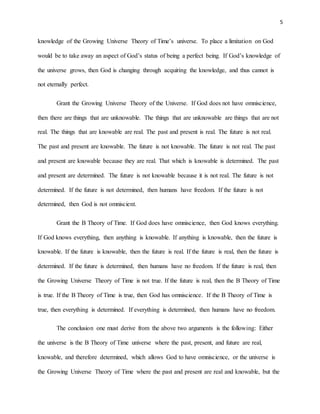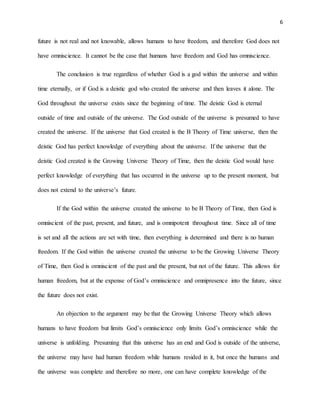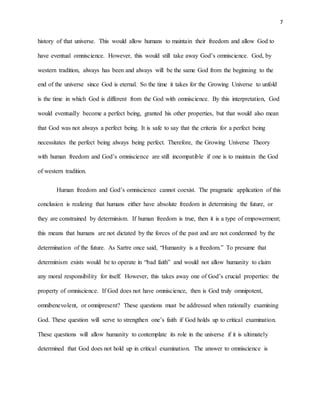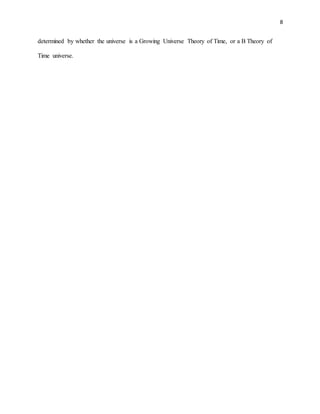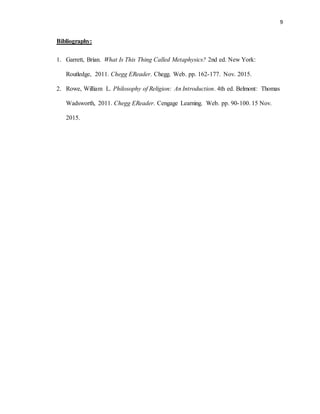This document examines whether human freedom and God's omniscience are compatible based on different theories of time. It defines key terms like omniscience, human freedom, and explores two theories of time: the B-Theory of time and the Growing Universe Theory of time. It concludes that human freedom and God's omniscience cannot coexist, as the B-Theory requires a determined future incompatible with freedom, while the Growing Universe Theory limits God's omniscience by not allowing knowledge of the future.
